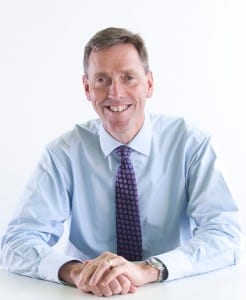Making time for improvement
By ucbtebe, on 22 December 2015
Professor Martin Marshall
Lead, Improvement Science London
The habits of improvers
Paul Batalden, a much respected quality guru, once described how people who deliver health care have two roles – to do the day job and to improve how they do the day job. This is a neat way of framing the challenges of professional practice but in the current environment it highlights a major challenge for GPs; at a time when many practitioners are struggling to keep their heads above water, how realistic is it to expect them to be able to stand back and find the time to learn and put into practice the skills required to be an effective improver? What is the right balance between doing, and learning to do more effectively?
Evidence from patient surveys, routine performance measures and CQC inspections suggests that despite these workload pressures most general practices have the skills to do the day job to a remarkably high standard. Currently, however, the majority of GPs are less aware of the range of options to help them to improve how they do their day job. We use time-honoured improvement interventions like guidelines, clinical audit, significant event analysis and peer review. But few clinicians are trained to make use of approaches that have emerged in the last decade based on the science of improvement and on systems thinking. As a result, the skills that GPs demonstrate to deliver care behind the closed door of the consulting room are often not matched by their ability to improve the systems that they are working in. This isn’t good for the NHS and can be deeply frustrating for individual clinicians and practice teams.
We are developing a better understanding of the characteristics of people who are effective improvers. We know that they utilise a broad range of technical tools to facilitate systematic improvement, including improvement science approaches such as process mapping, Plan-Do-Study-Act cycles, driver diagrams, care bundles and run charts. But more importantly, effective improvers have what a recent Health Foundation publication referred to as a set of ‘habits’ which make them more able to improve what they do. Improvers are committed to learning by being inquisitive and reflective. They have well-developed influencing skills, demonstrating empathy and an ability to deal with conflict. They are resilient, optimistic and able to tolerate uncertainty. They demonstrate creativity by being both open to and constructively critical of new ideas. And they make connections by being system-oriented and strategic in their thinking.
So, we know what an effective improver looks like but, going back to Batalden’s challenge, how realistic is it to expect GPs to allocate time to improve the day job when the volume, intensity and complexity of the work that they do is increasing at the same time as resources are becoming tighter?
The answer is that in this environment it is even more important that practice teams learn new skills. Using the science of improvement will help them to understand how systems work, to generate and test innovative solutions, and to differentiate between work that adds value and activities that are wasteful. It will give them a deeper understanding of why things work and it encourages people to focus on the most important determinant of high quality care – the shared values, motivations and behaviours of the people who provide and use NHS services. GPs want to be able to influence the system that they work in and, in order to do so, learning about how to be an effective improver is likely to be an effective use of their time. To learn more, take a look at the RCGP’s Quality improvement for General Practice; a guide for GPs and the whole practice team. Perhaps learning about improvement science could be built into your next Personal Development Plan?
This blog was published in the RCGP’s GP Frontline in December 2015.
Martin Marshall is a GP in Newham, East London and Professor of Healthcare Improvement at UCL. He is a member of the RCGP Council and is leading a programme embedding improvement science into general practice across UCL Partners
 Close
Close



